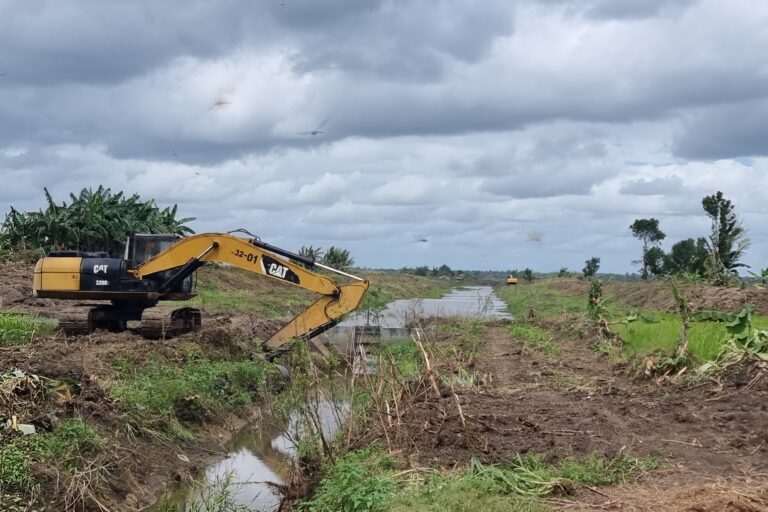- cross-posted to:
- ecology@mander.xyz
- cross-posted to:
- ecology@mander.xyz
- The Indonesian government is embarking on yet another project to establish a massive area of farmland at the expense of forests and Indigenous lands, despite a long history of near-identical failures.
- The latest megaproject calls for clearing 1 million hectares (2.5 million acres) in the district of Merauke in the eastern region of Papua for rice fields.
- Local Indigenous communities say they weren’t consulted about the project, and say the heavy military presence on the ground appears to be aimed at silencing their protests.
- Similar megaprojects, on Borneo and more recently also in Merauke, all failed, leaving behind destroyed landscapes, with the current project also looking “assured to fail,” according to an agricultural researcher.
JAKARTA — Indigenous Papuans say they’ve been caught off guard by helicopters flying over their villages and excavators tearing down their forests in their area, all while accompanied by the Indonesian military.
What they’re being subjected to is one of the largest deforestation projects in the world, which will see the development of 1 million hectares (2.5 million acres) of rice fields in Merauke, a district in Indonesia’s Papua region that borders Papua New Guinea.
The military is involved in the project because it’s led by the Ministry of Defense and has been designated a project of national strategic importance. Defense Minister Prabowo Subianto, who will be sworn in as Indonesia’s next president on Oct. 20, has appointed the hugely controversial Jhonlin Group to help administer the project.
The military’s involvement, coupled with the lack of free, prior, informed consent (FPIC) from Indigenous communities living in the area, have fueled concerns that the project will create new conflicts in the region.
Indonesia has maintained a heavy military presence in the Papua region since annexing it in 1963, with security forces frequently accused of committing human rights violations under the justification of cracking down on a low-level independence movement.



side note that's somewhat related to this (and i believe is more centered in Borneo):
kratom, which is used worldwide these days as a safer alternative to opiates, are slow growing trees that do best in a natural canopy. they drop leaves during the dry season which are then collected, cleaned, and ground for shipment. often it's indigenous or local subsistence farmers that collect them from large national forests as the forests are cut down and replaced by palm oil plantations this source of income is removed
supposedly some new regulations are coming regarding kratom in Indonesia. might be an attempt to sever this relationship so that remaining forests can be maximally exploited